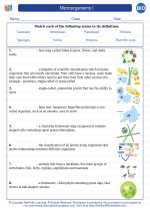Oxygen
Oxygen is a chemical element with the symbol O and atomic number 8. It is a member of the chalcogen group on the periodic table, a highly reactive nonmetal, and an oxidizing agent that readily forms oxides with most elements as well as with other compounds.
Properties of Oxygen
- Atomic Number: 8
- Atomic Symbol: O
- Atomic Mass: 15.999 u
- Phase at Room Temperature: Gas
- Boiling Point: -183°C
- Freezing Point: -218.79°C
- Density: 0.001429 g/cm3
Importance of Oxygen
Oxygen is essential for life as it is a key component of biological processes such as respiration. It is used by organisms to produce energy through the process of cellular respiration, where glucose and oxygen are converted into carbon dioxide, water, and energy in the form of adenosine triphosphate (ATP).
Oxygen is also crucial for the formation of the ozone layer in the Earth's atmosphere, which protects the planet from harmful ultraviolet radiation from the sun.
Study Guide
Here are some key points to remember about oxygen:
- Oxygen is a chemical element with the symbol O and atomic number 8.
- It is a highly reactive nonmetal and readily forms oxides with most elements.
- Oxygen is a colorless, odorless, and tasteless gas at room temperature.
- It is essential for the process of respiration in organisms, where it is used to produce energy.
- Oxygen is also important for the formation of the ozone layer in the Earth's atmosphere.
Remember to review the properties of oxygen, its role in biological processes, and its significance for the environment when studying this topic.
For further understanding, it's important to explore the molecular structure of oxygen, its role in different chemical reactions, and its impact on various biological systems.
For any additional questions or concepts related to oxygen, feel free to ask!
[Oxygen] Related Worksheets and Study Guides:
.◂Biology Worksheets and Study Guides High School. Microorganisms I
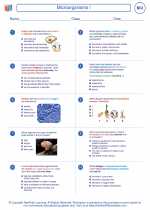
 Worksheet/Answer key
Worksheet/Answer key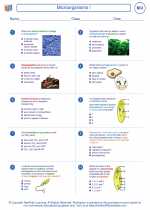
 Worksheet/Answer key
Worksheet/Answer key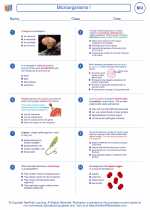
 Worksheet/Answer key
Worksheet/Answer key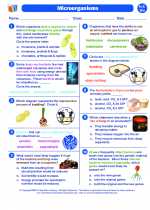
 Vocabulary/Answer key
Vocabulary/Answer key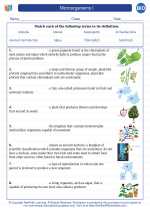
 Vocabulary/Answer key
Vocabulary/Answer key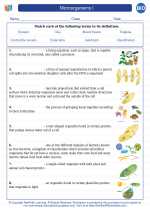
 Vocabulary/Answer key
Vocabulary/Answer key
 Vocabulary/Answer key
Vocabulary/Answer key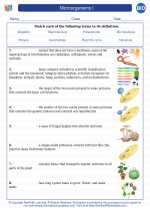
 Vocabulary/Answer key
Vocabulary/Answer key